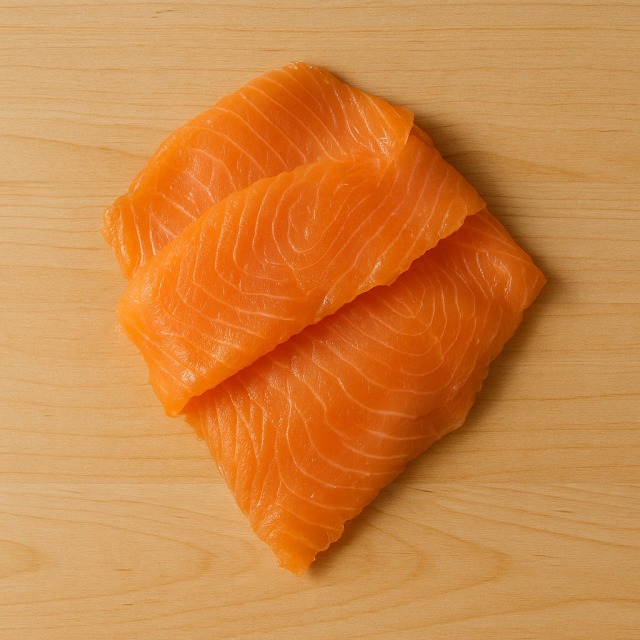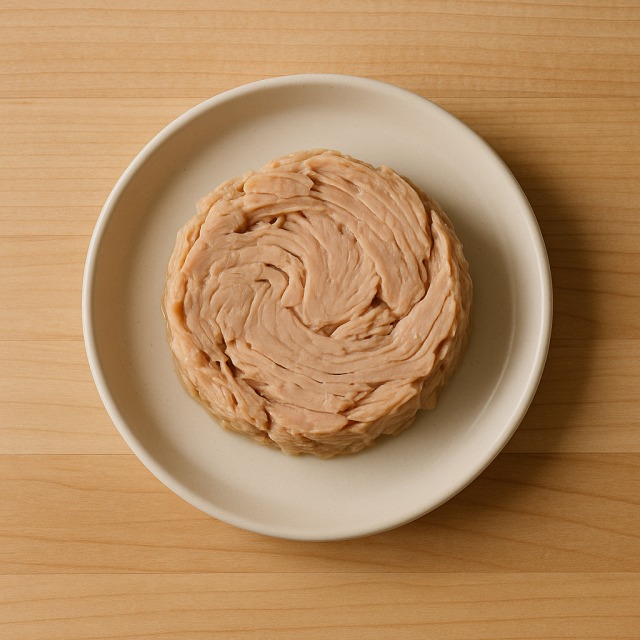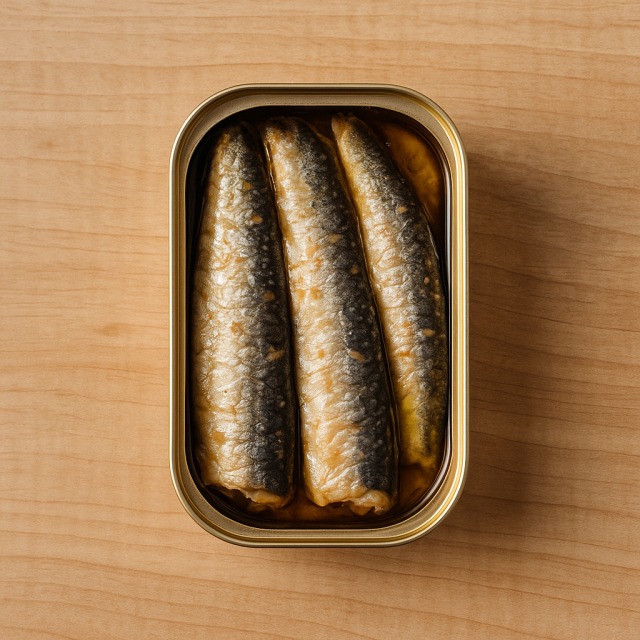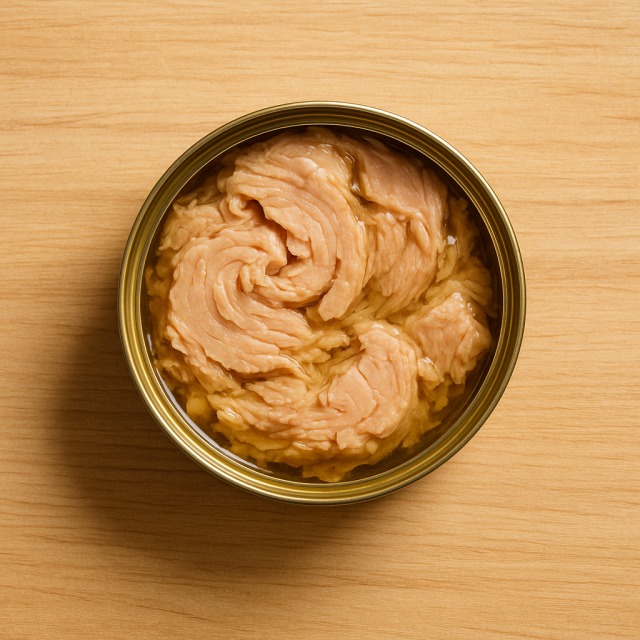Calorie Chart / Fish / Mackerel
How Many Calories Are in Mackerel?
Calculation of the nutritional value & Recommended Dietary Intake of mackerel
For g and a calorie requirement of kcal
| Calories 192 kcal | Proteins 21 g | Lipids 12 g | Carbohydrates 0 g |
| 10% | 28% | 18% | 0% |
Health benefits of mackerel
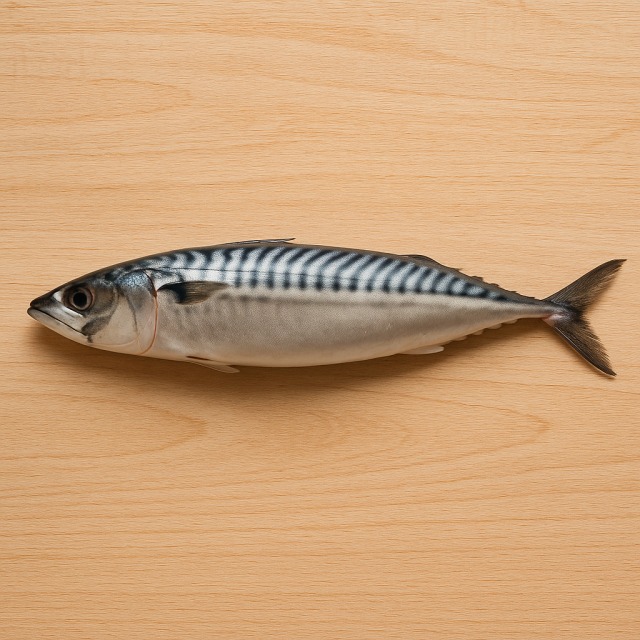
Mackerel - 100g
Calories 128 kcal
Proteins 14 g
Lipids 8 g
Carbohydrates 0 g
Mackerel is a moderate-calorie fish (128 kcal/100 g) that nevertheless delivers a remarkable nutrient density for every bite of those calories. Its flesh is packed with long-chain omega-3 fatty acids (EPA and DHA), nutrients widely documented for supporting cardiovascular health and helping to keep triglyceride levels in check.
On the vitamin side, mackerel supplies generous amounts of vitamin B12 (well above daily needs), vitamin D for bone and immune support, vitamin A for vision, and several B-complex vitamins involved in energy metabolism. Among minerals, it is particularly rich in selenium, iodine, and phosphorus, all of which contribute to thyroid function, antioxidant defenses, and healthy bones.
The fish contains no carbohydrates, contributes 14 g of complete proteins per 100 g, and only 8 g of lipids, most of them unsaturated. Thanks to this profile, the calories you ingest are accompanied by large quantities of essential micronutrients. Regular consumption is also supposed to support cognitive function and mood because of DHA, although more research is needed; hence the word "supposed."
Historically, mackerel has been a staple food along Atlantic and Mediterranean coasts; its popularity grew in the 19th century when canning made this moderate-calorie fish available inland all year round.
Tips for incorporating mackerel into a balanced diet
Because mackerel already brings moderate calories and good fats, pair it with light, vitamin-rich sides. A classic idea is grilled mackerel with a squeeze of lemon and steamed broccoli; the fibers of the vegetable help you feel full without many extra calories.
If you want a full meal that remains calorie-conscious, try a warm salad of flaked mackerel, cherry tomatoes, chopped parsley, and cooked quinoa. The complex carbohydrates in quinoa stabilize blood sugar and extend satiety.
For an energy boost after training, prepare whole-grain toast spread with homemade mackerel rillettes (replace butter with light fromage blanc to cut calories) and top with a spoonful of vibrant pesto sauce. The mix of proteins and healthy fats makes it an alternative to higher-calorie spreads like peanut butter.
Mackerel also works in Mediterranean-style meals: bake the fillets on a bed of sliced potatoes and bell peppers. Finish with fresh herbs — you will obtain a satisfying dish whose global calories stay lower than frying with extra oil.
Frequently Asked Questions
- How many calories are in mackerel?
- There are 128 kcal per 100 g.
- Is mackerel good for weight loss despite its calories?
- Yes. The fish delivers high satiety thanks to proteins and omega-3 fats, so moderate portions keep hunger at bay while providing fewer calories than many red meats or processed foods.
- Which has more calories, mackerel or sardine?
- Sardines generally sit around 170 kcal/100 g, so mackerel contains fewer calories.
- How can I cook mackerel without adding too many calories?
- Grill, bake, or steam it and season with herbs, citrus, or a drizzle of soy sauce. Avoid breading or heavy cream sauces that quickly raise calories.
- Does canned mackerel in oil have the same calories as fresh?
- No. Oil-packed cans absorb extra fat and can exceed 200 kcal/100 g. Choose brine- or water-packed versions to keep calories comparable to fresh mackerel.
Similar foods
Information provided by Calorie Menu may contain inaccuracies or errors. It cannot, under any circumstances, substitute medical advice or medication.
